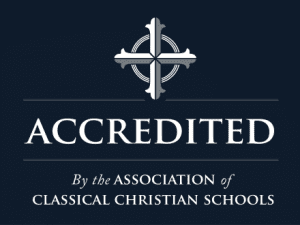Why We Read Hard Books
An Ambrose Parent Education article by Chris Browne, 7th & 11th Grade Humanities Teacher
Dear parents,
I recently finished reading Dante’s The Divine Comedy with my junior students and Homer’s The Odyssey with my seventh grade students. You will not find either on the reading lists of many high schools around the country, as both have been deemed too difficult, inaccessible, or antiquated for young readers. If the rest of the world has given up on these books and others like them, then why haven’t classical Christian schools like ours? Wouldn’t we be better off assigning our students reading that was less difficult, easier to digest, and frankly, more enjoyable? There are great answers to those questions!
Giving students what they need
In a roundabout way, an article published in the The Wall Street Journal a few weeks ago gets at some of those answers. The article cites a tech company’s analysis of what kind of books kids enjoy reading. Not surprisingly, ninjas and dinosaurs are high on the list, while ethical philosophy and Trinitarian theology didn’t make the cut. The basic concern of the tech company involved is that they publish the kind of books that kids want to read.
Though the article is specifically about what algorithms say kids enjoy reading, the underlying questions it raises apply to our student reading lists. Should we be primarily concerned with giving students what they want? As Dr. Mohler, the President of The Southern Baptist Theological Seminar and Boyce College put it regarding the results of the study, “if we just give children what the algorithms say they want, they’re going to miss an awful lot of literature, including exposure to those creatures, those stories, those persons, those narratives that they do not yet know that they want.” Amen to that. Our job as parents and teachers is not to give our students what they want, but to give them what they need; not to give them what they enjoy, but to give them what is good; not to give them what entertains them, but to give them what transforms them. We do not read The Aeneid with students because they are entertained by it or they want it; we read it with them so they might see the beauty in it and be transformed by having their moral imagination awakened and shaped.
Cultivating a taste for the good
It is true that through careful cultivation by parents, teachers, pastors, and friends that many students will come to love the books we read, the conversations we have, and the liberal arts we study. By “love” I do not mean they will necessarily have some warm sentiment towards The Aeneid or the other books we read; that may or may not happen. By “love” in this context I mean something greater: we hope our students will come to have a deep and abiding respect and appreciation for the true, good, and beautiful things we expose them to. This respect and appreciation can exist independent of any feeling our students might have about the things they encounter during their education.
Lastly, we don’t read great books with students in order that they might find out whether or not the books appeal to their individual tastes, like vanilla ice cream or the color blue might. Their value is not rooted in our personal preference for them, but in the great ideas they contain and their capacity to shape us. The books we read are good in and of themselves because of the truth, goodness, and beauty they contain. Our job as parents and teachers is to cultivate in our students a taste for that good. It is important we not confuse the two!
Chris Browne, 7th Grade Humanities & 11th Grade Co-Teacher
 M.A., History, Latin minor, Boise State University; B.A. History, Philosophy minor, Boise State University
M.A., History, Latin minor, Boise State University; B.A. History, Philosophy minor, Boise State University
I joined The Ambrose School in 2011. I embraced classical Christian education for two primary reasons. First, it maintains the proper goal of education, which is not to merely train good technicians or accountants, but to cultivate virtue in the lives of students. If you can cultivate virtue in a student so that he rejoices in the Lord always, loves his neighbor as himself, and does all things as to the Lord, then you will as a result get a good technician or accountant. However, if you set out to only train a good technician to the neglect of the moral character of the student, you run the risk of only producing what C.S. Lewis called “a more clever devil.” Also, classical Christian education is vastly superior to the modern approach to education because through the Trivium it utilizes the student’s natural developmental stages to produce a student equipped to both think and articulate great ideas.
I am an Idaho native. My wife, TJ, and I live in Boise with our two daughters, who both attend The Ambrose School. We love Boise because of the great Christian community and the many recreational opportunities here.



